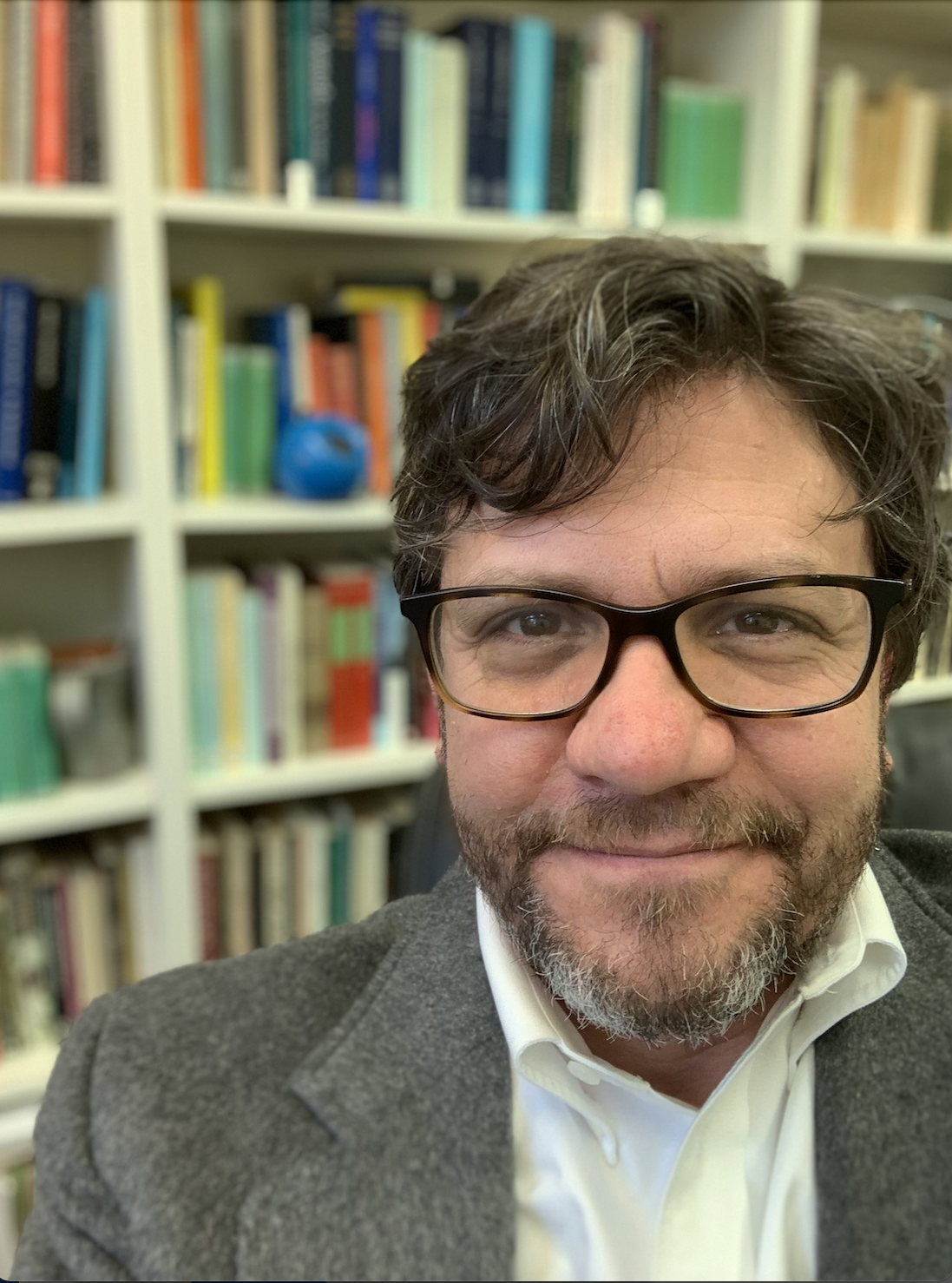Professor of Philosophy
Education
Ph.D., M.A. Johns Hopkins University
B.A. College of William and Mary
Publications
“Affinity, Worth, and Fecundity: On Susan Wolf’s Advice for Living a Meaningful Life,” Journal of Philosophy of Life 10/1 (July 2020):1-16.
“Feminist Encounters with Plato: Appropriation, Disinvestment, and Constructive Complicity,” Platonic Investigations 9/2 (2018): 193-204.
Commentary on Zina Giannopoulou, “Self-Knowledge in Plato’s Theaetetus and Alcibiades I,” Proceedings of the Boston Area Colloquium in Ancient Philosophy 30 (2015): 95-102.
Review of Sara Abhel-Rappe and Rachana Kamtekar, eds, A Companion to Socrates (Wiley-Blackwell, 2009) in Classical Review 64/2 (October 2014): 382-384.
“Socrates, Rationality, and the Daimonion,” Ancient Philosophy 28/2 (2008): 285-309.
Review of Socrates’ Divine Sign: Religion, Practice, and Value in Socratic Philosophy,” edd. Pierre Destrée and Nicholas D. Smith, Apeiron: A Journal for Ancient Philosophy and Science 38/2 (June 2005) in Bryn Mawr Classical Review 2006.07.57
“Plato’s Cave and The Matrix” in Philosophers Explore the Matrix, ed. Christopher Grau (Oxford, 2005), 239-57.
Review of Lorraine Smith Pangle, Aristotle and the Philosophy of Friendship (Cambridge UP, 2003) in Philosophical Inquiry 26/4 (2004): 139-142.
“Socrates’ Daimonion in Plato’s Phaedrus: the Literary and Philosophical Significance of the Divine Sign (pdf),” Skepsis 13 & 14 (2002-2003): 75-92.
“Hume’s Motivational Naturalism and the Kantian Challenge,” Early Modern Philosophy 5. Ed. Stanley Tweyman. (Ann Arbor, Michigan: Caravan Books, 2000), 113-130.
“Socratic Dialectic and the Art of Love: on Phaedrus 276e-277a,” Ancient Philosophy 19 (1999): 121-132.
Teaching Interests
FYE 101 “What is the Good Life?”
Phil 101 Introduction to Philosophy
Phil 203 Ancient Greek Philosophy
Phil 233 Philosophy and Literature
Phil 236 Aesthetics
Phil 298 Life, Death and Meaning
Phil 401 Epistemic Injustice
Student Projects
In 2022 a Faculty-Student Research Grant supported work on meaning in life with Erin Bowes ’23 and Gia Orsino ’23. My Mars Faculty/Student Research Fellow in 2009 was R. Carry Osborne ’11; we worked on the Feminist History of Ancient Philosophy.
I have supervised honors theses of Yixi Zhou ’20 (Philosophy) “Do Machines with Artificial Intelligence Performing as Caring Companions Have Personhood and Social Rights?” Gina DeSimone ’16 (Philosophy) “The Makings of a Monster: Exploring the Connection Between Mary Wollstonecraft’s Philosophy and Mary Shelley’s Frankenstein,” John Green ’15 (Philosophy) “Does Freedom Imply Morality?: The Understanding and Interrelation of Freedom, Action, and Morality in Kant and Nietzsche’s Normative Philosophy,” Kenneth Monroe ’12 (Philosophy) “Freedom and Normative Neutrality:Assessing Robert Nozick’s Libertarianism,” Maya Milic-Strkalj ’08 (Philosophy) “Liberalism as Feminism: Martha Nussbaum’s Capabilities Approach,” and Julia Felder ’06 (Philosophy) “The Ideal of the Moral Law Within: How Rational Beings Find Perfectionism in Imperfect Duties.”
I have also directed the independent studies of Lucas Rosa ’18 (Philosophy) “Remaining Aloft: Interpretations of The Fall & A Newfound Understanding of Clamence,” Isaac Napell ’13 (English) “Post-9/11 Literature,” Bernadette Reust ’05 (Philosophy) “Corruption: the Mystery of Socrates’ Guilt,” and Simon Leen ’03 (Philosophy) “Nietzsche’s Nihilism.”
Finally, I have served on the senior thesis committees of Ben Osborn ’22 (Physics), “Thermal Quenching of Luminescence in YAG:Ce,” Audrey Dubois ’17 (English), “Meter? I Barely Even KNOW ‘er! Encoded Information in the Formal Qualities of Poetry,” Jonathan Gerkin ’15 (English) “The Grace of God Grows Great Enough: Doctrinal Grace and Christianity’s Dual Ontology Problem in Medieval Literature,” Natasha Piirainen ’14 (English) “Reconsidering Liedertheorie: How German Nationalism Affected Beowulf Scholarship in 18th and 19th Century Europe,” Laura Parker ’12 (Neuroscience) “Coming Back from Oblivion: Target Revival in Object Substitution Masking,” R. Carry Osborne ’11 (Philosophy) “The Satisfactions of Subjectivity: A Defense of Idealism,” Gabrielle Kappes ’09 (English) “Fashioning a Voice of Her Own: The Poetics of Place in Dorothy Wordsworth’s Poetry, Narratives, and Travel Writing,” Rachel Moulton ’09 (Psychology) “The Experience of the Asexual Identity: A Q-Methodological Study,” Paloma Naderi ’09 (Philosophy) “Can We Talk About Women As Women? A Philosophical Inquiry into the Feminist Essentialist Debate,” Elisabeth Lohmuller ’08 (English) The Appearance of Things, Gabrielle Nussbaum ’08 (Philosophy) “The Tragedy of the Commons,” Jacob Rusczek ’07 (Psychology) “The Five-Factor Model of Personality: A History and Evaluation,” Heather Mills ’06 (Philosophy) “On the Nature of Persons,” Julia Whitredge ’05 (English) “Turning History into Myth: Easter 1916 through Poetry,” Carolyn Wills ’05 (Philosophy) “Death and Dying in the Twenty-First Century: An Argument for the Moral Permissibility of Physician-Assisted Suicide and Voluntary Euthanasia,” Trishula Oswald ’04 (Philosophy) “Responsibility, Choice, and Alternatives: The Presuppositions of Harry Frankfurt’s Counterexample,” William C. Richards IV ’04 (Art History) “Space Sandwich: Liminality & Louis Kahn’s Elm Street Dining Hall at Phillips Exeter Academy,” Heather Brennan ’03 (English) “A Virtuoso of Affectation: Oscar Wilde, Aesthetics and the Importance of a Scandal.”
Research Interests
My main research area is Ancient Philosophy. Much of my attention is on Socrates and his depiction in Plato’s dialogues. I’ve worked on his religious beliefs and practices (e.g., his divine sign or “daimonion” and the implications of this peculiar experience on his commitment to rationality); his claim to possess an “art of love” (and what this says about the role of interpersonal relationships in the pursuit of truth or goodness); and the nature and value of self-knowledge.
In recent years, I’ve become interested in social epistemology and the philosophy of meaning in life.
